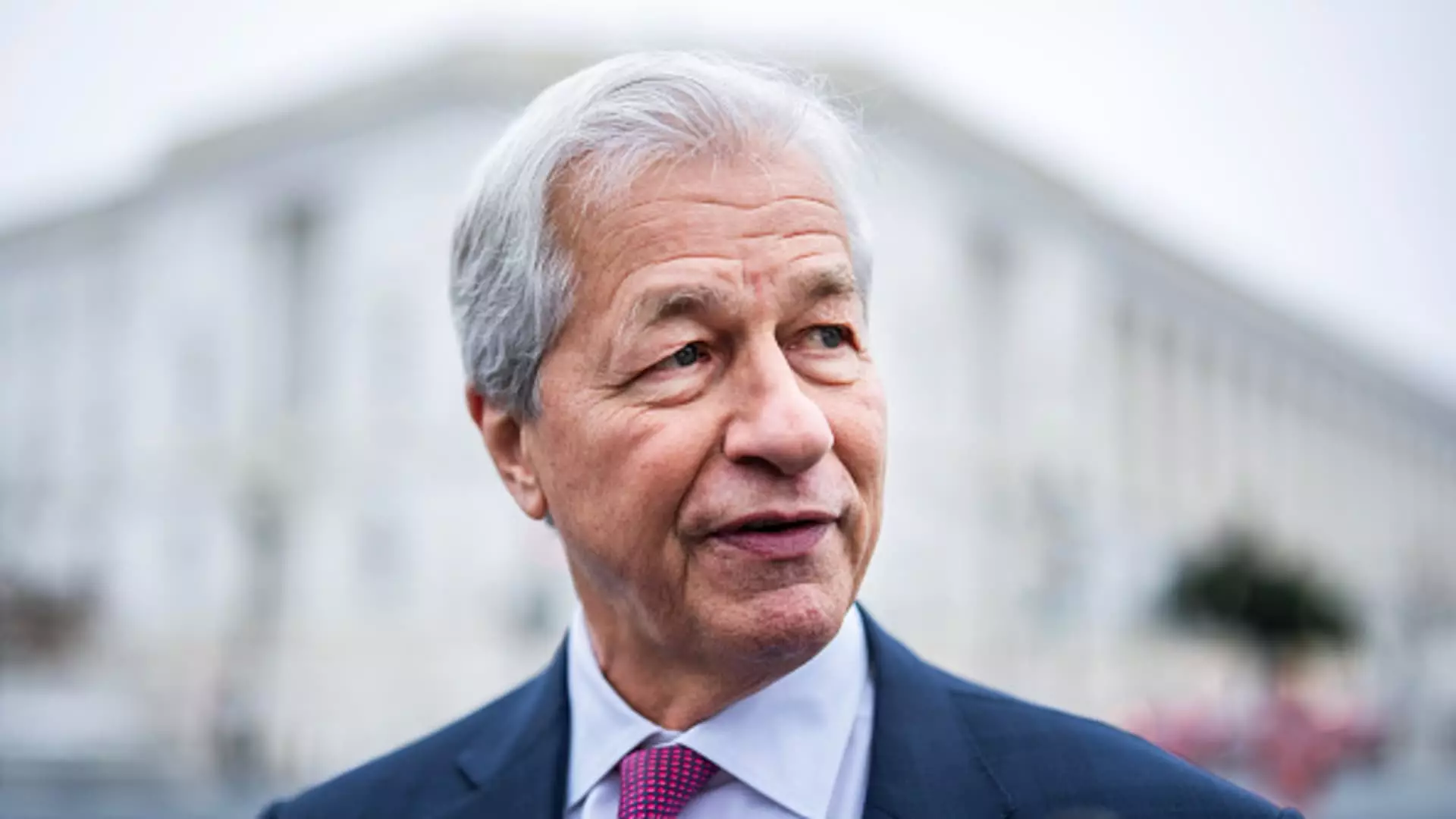In recent remarks, JPMorgan Chase CEO Jamie Dimon shed light on issues surrounding government inefficiency, particularly in the context of the Trump administration’s ongoing efforts to streamline federal agencies. During an interview with CNBC, Dimon articulated a perspective that resonates with many observers of American governance: the notion that significant reform is necessary for the federal machinery to operate effectively. As agencies such as the Consumer Financial Protection Bureau face scrutiny, Dimon raises important questions about the value derived from government spending and the efficacy of current operations.
Dimon’s reflections are timely, considering the broader political climate and the increasing scrutiny on federal expenditures. His acknowledgment of governmental inefficiencies challenges the status quo and suggests that despite the complexities involved, a comprehensive evaluation of government functions is overdue. It is not merely about identifying waste and fraud; Dimon emphasizes the need to reassess outcomes delivered by governmental agencies.
As Dimon pointed out, the examination of what taxpayers receive in return for their contributions is crucial. He articulates a need to balance budgetary considerations with the establishment of robust policies that ultimately govern national interests. This dual focus on fiscal discipline alongside effective governance mirrors the sentiments of many business leaders who argue that government should operate with the same efficiency and accountability expected in the corporate world.
Notably, the call for efficiency does not dismiss the necessity of governmental oversight. Dimon’s comments about the Department of Government Efficiency (DOGE) illustrate a cautious optimism toward federal reform initiatives. He fears, however, that excessive cost-cutting could lead to repercussions that stray into legally questionable territories, which, according to him, would warrant judicial intervention. This highlights the delicate balance that must be struck when implementing changes within federal structures.
In the course of the interview, Dimon also touched upon a variety of other important topics, from workplace dynamics to international conflicts. His choices as a leader, advocating for in-person work five days a week, display a commitment to maintaining a cohesive corporate culture—a value he believes is paramount amidst growing trends toward remote work. This leadership approach emphasizes the importance of engagement in productivity, a principle that can similarly apply to governmental operations.
Dimon’s multifaceted stance brings to light the interconnectedness of various societal issues. For example, the approach to tariffs and responses to global conflicts can be viewed through the same lens of accountability and effectiveness that he advocates for in government agencies. Consumers, too, are impacted by the decisions made at the governmental level, and understanding these connections can lead to a more informed public discourse.
Ultimately, Dimon’s critique of U.S. government efficiency lays the foundation for an essential dialogue surrounding reform and accountability. His advocacy for revisiting policies and evaluating expenditures speaks to a larger desire for a government that is not only more competent but also more aligned with the needs of its citizens. As discussions evolve, fostering an environment where collaborative innovation thrives could pave the way for a more effective and responsive government, ultimately benefiting all Americans.

Leave a Reply